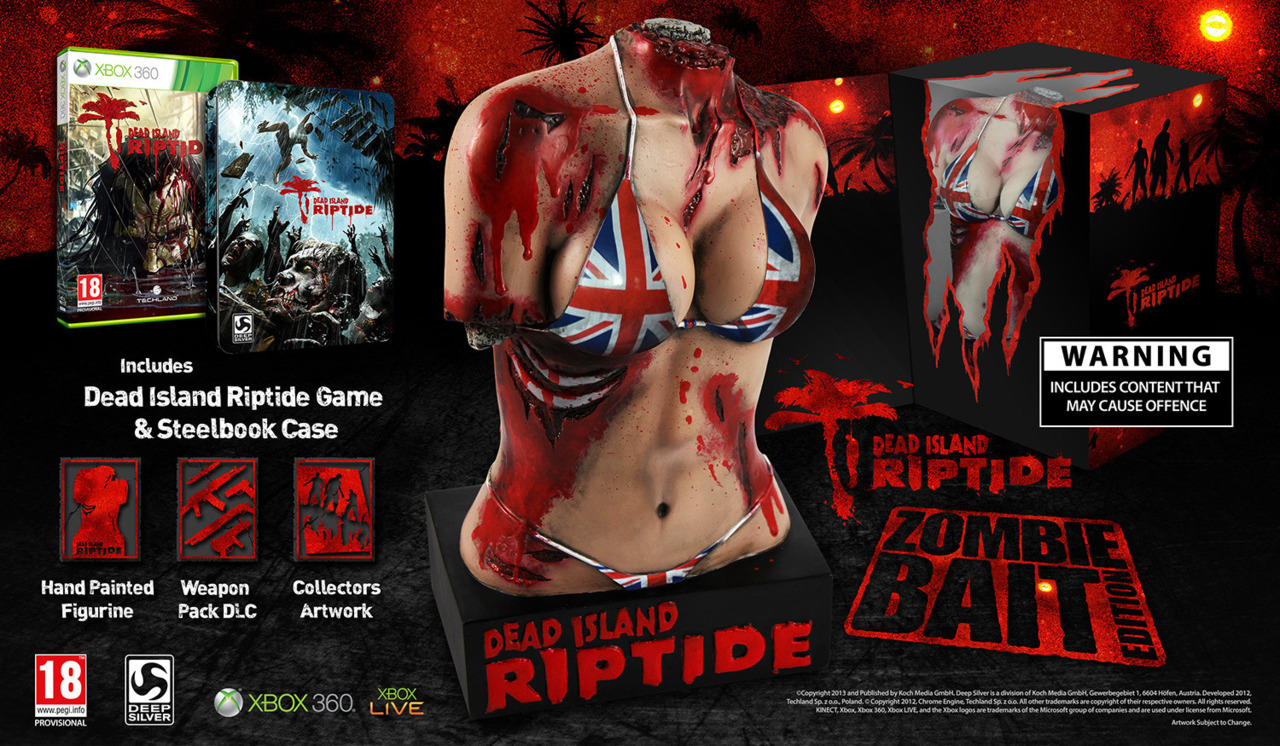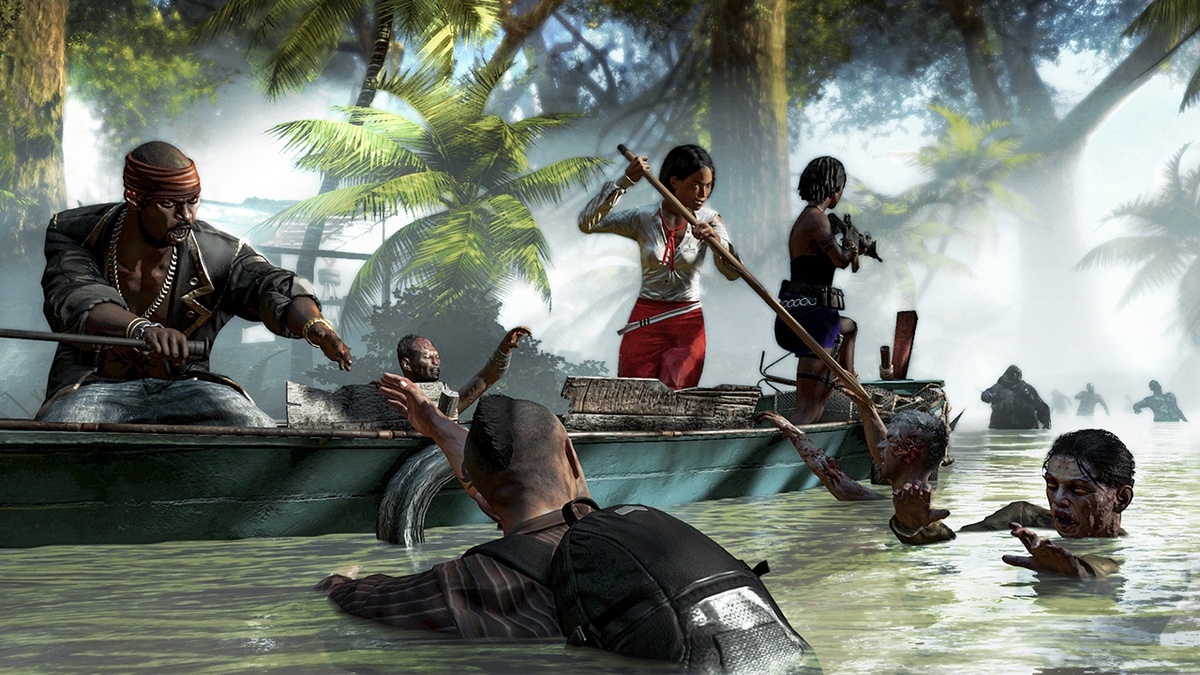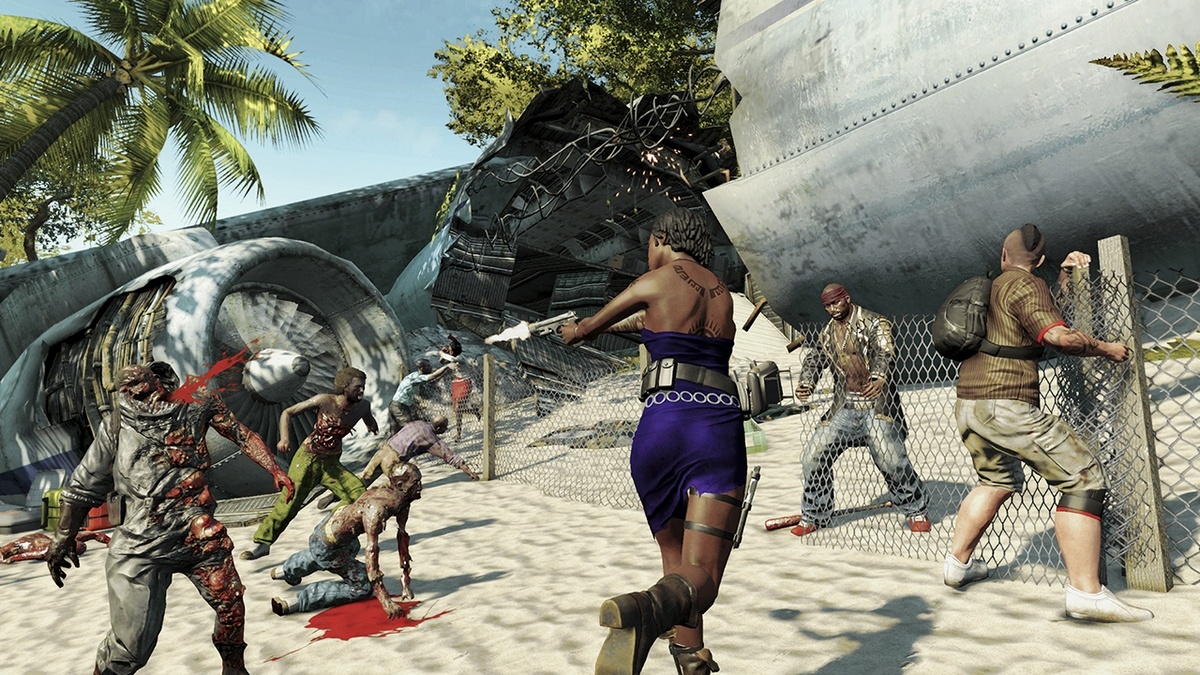Dead Island Riptide and the problem with video game marketing
What decisions affect the marketing of a video game? What responsibilities do publishers have when creating advertising material? Five different voices in the games industry sound off on the Dead Island Riptide controversy.
Last week, video game publisher Deep Silver unveiled a special marketing promotion for Dead Island Riptide: a collector's edition of the game featuring a 31cm resin statue of a decapitated near-naked female torso.
The bloody torso, meant to signify a "grotesque take" on the Roman marble sculptures of the second and third centuries, was described by Deep Silver as a "conversation piece".
The same day, prompted by an overwhelming amount of negative feedback, Deep Silver released a public apology for the product it had so enthusiastically praised hours earlier.
"We sincerely regret this choice," the company said. "We are collecting feedback continuously from the Dead Island community, as well as the international gaming community at large, for ongoing internal meetings with Deep Silver's entire international team today. For now, we want to reiterate to the community, fans, and industry how deeply sorry we are, and that we are committed to making sure this will never happen again."
Do game publishers have a responsibility to ensure marketing materials meet a certain standard? And should more game marketing strive to honor and reflect the original creator's vision for the game?
GameSpot asked five voices from different parts of the international gaming industry to sound off on the problematic aspects of video game marketing.
Rhianna Pratchett, games writer:
I'm a fan of Dead Island and I'll admit that I've chopped off more than a few zombie limbs in my time--mainly because it's pretty hard not to in the game. But when I saw the severed and mutilated, bikini-and-gore-clad torso which was being promoted with the collector's edition of Dead Island Riptide, I was a little shocked. Who thought that such a crass, offensive (to both men and women), and generally tacky piece of merchandise was an appropriate 'reward' for players who shelled out more money for the collector's edition? Why did part of Deep Silver's apology seem to be trying to shift the blame onto players by suggesting that it's already what they do in the game? There are many things that I do in games that I wouldn't want immortalized in a desktop accessory.
It's not surprising to see games marketing aimed at men, but it's not often quite so blatant i.e. "Look, tits!" It is perfectly possible to keep the creative integrity of a franchise without resorting to one-gender marketing tactics. AMC's recent collector's edition piece for their Blu-ray version of The Walking Dead shows this perfectly. It's a male zombie head with a screwdriver through its eyes. Nasty, sure. Gross, a little. In keeping, definitely. Offensive, no.
Having been caught up with a recent 'controversy' on Tomb Raider, I know that the way we market games matters. The way we speak about players, characters, and their relationships matter. The idea that there's no such thing as bad publicity was coined long before the days of the Internet and social media. It's simply not the case anymore. However, situations likes these do have an importance and value in our industry. They create necessary debate about the ways in which marketing should reflect a game's content. They let players and press discuss where the lines are, whether they should be crossed, and if so, how. I'd rather that these scenarios didn't happen, but talking openly about these issues is the only way that we'll ever move on from them.
Rhianna Pratchett is a scriptwriter and story designer for video games, books, film, and television. She is currently the lead writer on the upcoming Tomb Raider game from Square Enix and Crystal Dynamics.
Nels Anderson, Klei Entertainment:
Stuff like this just feels embarrassing. It's either remarkably tone-deaf or tremendously calculated and cynical, and either way that's pretty disappointing. I wish it didn't take a great public outcry to get some organizations to be more conscientious with what their means of promotion say.
I have no problem with gore or violence, or even something that's provocative, if it has some measure of purpose and context. Unfortunately, these things are almost always without either. It's literally meant to sell something, it has nothing to do with creative expression. And what it says about the beliefs of the developers (or at least some people in the chain) about who would be motivated to buy their game because of this just makes me kind of sad.
Nels Anderson is a game developer and designer. His last project was Klei Entertainment's Mark of the Ninja, on which he was lead designer.
Brian Moriarty, Worcester Polytech:
It happens that I am teaching a course called Social Issues in Interactive Media and Games this term. Last week, I was deciding which topics to discuss in the next day's class, when the Dead Island Riptide controversy flashed across the web. Talk about a gift! All I had to do is drop Deep Silver's hi-res promotional image of a dismembered bikini-clad torso into my PowerPoint, sit back and watch the fireworks.
Or so I thought.
The big moment came. After a bit of build-up, I flashed the gruesome torso onto the screen. First, I asked the three females in the lecture hall what they thought of it. Then I asked the remaining twenty-two males. The ones who responded said approximately the same thing: "Yeah, that's offensive, but…".
There was a brief discussion of whether it would make any difference if the breasts were realistically smaller. A few praised the canniness of the marketing. One woman pointed out that the bottom of the bikini would never really stay on like that. Nobody seemed interested in buying one, especially when I estimated what £100 was in American dollars.
The general reaction could be characterized by one word: "Whatever".
I told them about a couple of similar controversies in my youth. One was a 1966 album cover released by Capitol which showed the Beatles draped with bloody strips of raw meat and baby doll parts. Another was in 1972, when Warner Bros. wrapped each copy of Alice Cooper's School's Out LP in a pair of girl's panties.
So I asked my students, does this zombie-kitsch Dead Island torso objectify and degrade women or not? Does it contribute to the popular image of video games as violent, sexist and depraved? Do game companies bear any responsibilities to society beyond their mandate to make money? Would you work for a company that resorted to marketing gimmicks like this?
They looked down at me, silent, fidgeting in their stadium seats.
Maybe I shouldn't have showed the torso. Maybe I should have stuck to my lesson plan and played through Jason Rohrer's Passage instead, explicating the elegance of its procedural rhetoric, and holding it up as an example of how games, unlike any other medium, have the potential to instantiate beauty and truth in a process.
Or whatever.
Brian Moriarty is a video game developer, academic, and creator of the 1990 Lucasfilm Games graphic adventure, Loom. He is currently the Professor of Practice in Game Design at Worcester Polytech.
Sam Machkovech, writer:
As offended as I am by a faceless, amply-breasted torso used to peddle a video game, I'm perhaps more offended by the game in question being Dead Island Riptide. In 2011, I doubled over in nausea as I watched games writers stumble over themselves to laud the first game's trailer--a pre-rendered clip that, in no way, resembled its eventual game. Since when did this stuff fool us? Aren't we past the PlayStation 1 era?
Yet the hype rolled, even though Deep Silver failed to live up to its trailer, which revealed a troubling truth about the usefulness of smoke, mirrors, and hubbub in modern gaming PR. A lot of writers complained about the lengths Deep Silver went to before announcing its sequel's torso trinket last week, yet it's obvious why the thing got announced: because those same writers waste no time promoting teasers, one-at-a-time character reveals, and offensive practices. Deep Silver has a responsibility as an entertainment company to not overstep the line between tasteless and degrading, but enthusiast outlets should consider their responsibilities too: to establish a better filter and shape the conversation in such a way that pre-order DLC and figurines don't always dominate the headlines, whether they’re offensive or not.
Sam Machkovech has served as a games columnist for The Atlantic and The Daily. He currently contributes gaming articles to Polygon, Ars Technica, American Airlines, and Unwinnable.
Ian Bogost, Georgia Institute of Technology:
Somehow, the video games industry has managed to convince itself and its enthusiasts that its product is distinct from its marketing. This attitude cuts both ways. When a product deemed worthwhile suffers from 'bad' marketing, it's the marketing that seems to get the blame. This is true whether it be a beloved title perceived to have been 'watered down' by plainclothes cover art (Bioshock Infinite), or a revolting and offensive figurine foolishly conceived and manufactured for a special edition pack-in (Dead Island Riptide).
Those of us who are engaged enough in the industry to be reading someone like me voice an opinion about it, we often take these marketing offenses to be either violences wrought against the purity of the game itself, or else demonstrations of the grotesqueness of Marketing, which becomes an amorphous, ghoulish abstraction.
But this attitude makes a surprising mistake. We live in a world in which, by and large, marketing and products are almost identical. The marketing, in some respects, is the product: it embodies all the feelings and sensations a company hopes a consumer might want to satisfy by buying its wares. For example, the marketing for a rugged 4x4 SUV might show a strapping young couple conveying themselves off-road to find a perfect, secluded spot for a romantic afternoon of kayaking. In reality, of course, the vehicle will probably be sold to an overweight, middle-aged parent who will drive it around town running errands. But the idea, the dream of adventure and outdoorsmanship: that's real. That's not just something the marketers manipulated out of air.
Perhaps there is a disconnect between design, marketing, and fandom in video games because nobody involved really wants to be much of anything in particular. A video game, we continue to insist, is just entertainment. It's just a game. It's nothing political, or social, it doesn't have anything to say. "Keep your politics out of my games," say players. "We're just here to make good games," say the developers. "People will vote with their wallets," they insist. "A game is good if it's fun to play, period." But then, simultaneously, we believe video games can do no harm. They don't cause or encourage violence, or misogyny, or anything at all apparently, except the numb sensation of basking in front of them.
STAR WARS: Prequel Pack - Official Reveal Trailer DEAD OR ALIVE Xtreme Venus Vacation PRISM - Official 2nd Trailer Phantom Blade Zero - 6 Minute "Year of the Snake" Gameplay Trailer The Hundred Line -Last Defense Academy-: Character Trailer 1 Black Ops 6 & Warzone - Official Season 02 Launch Trailer GUILTY GEAR STRIVE: DUAL RULERS - Official Main Trailer Marvel Rivals | The Spring Festival Trailer Kingdom Come: Deliverance 2 Roadmap Trailer Zenless Zone Zero - Astra Yao Character Demo | "Ridu Holidays" BlazBlue Entropy Effect - Hazama Character DLC Gameplay Reveal Trailer Helskate Launch Trailer Code Violet | Announcement Trailer
Please enter your date of birth to view this video
By clicking 'enter', you agree to GameSpot's
Terms of Use and Privacy Policy
No wonder gamers can't understand why the rest of the world thinks Bioshock Infinite looks like just another meaningless shooter, or why Dead Island Riptide now looks like a depraved rape joke. The fat dude in the 4x4 he never takes off-road may look like a stooge, but at least he's a stooge who had an idle aspiration.
I know we all hate marketing these days. We live in a world overrun by advertising. We can't escape it. But yet, marketing is also a public, collective conversation. It's a way for us to participate in common ideals. Many of those ideals are stupid, and some of them are actively detrimental to our prosperity. But others are weirder and more ambiguous.
It's telling that some of the most successful games of recent memory don't really 'market' at all. Digital downloads don't have boxes, and games like Minecraft and Angry Birds don't have transit ads or billboards, even if they do have vinyl figurines and pajamas. It's tempting to conclude that we're better off with such approaches, that these titles are more pure and less manipulative, allowing their true nature as designed experiences to take the place of ill-formed misrepresentations wrought by guileless, open-mouthed advertisers. But those titles are also empty in a different way: often, they don't seem to want to be much more than whatever they are to whomever finds them. All uses are good uses, after all. Nothing to see here, it's just a game.
Even if marketing really does amount to the crass, commercial attempt to create desire, shouldn't the desire it seeks to create be something that might be worth desiring? And for that matter, shouldn't we creators and players want our games to want something of us, at least to pretend to push us into a different way of thinking or living? Otherwise, I'm not sure what's worse, the marketer who invents a desire to bestow upon an inanimate object, or the game maker or game player who doesn't believe that such a desire is even possible.
Ian Bogost is a video game designer and critic. He is currently the Ivan Allen College Distinguished Chair in Media Studies and Professor of Interactive Computing at the Georgia Institute of Technology.
'Got a news tip or want to contact us directly? Email news@gamespot.com





Join the conversation